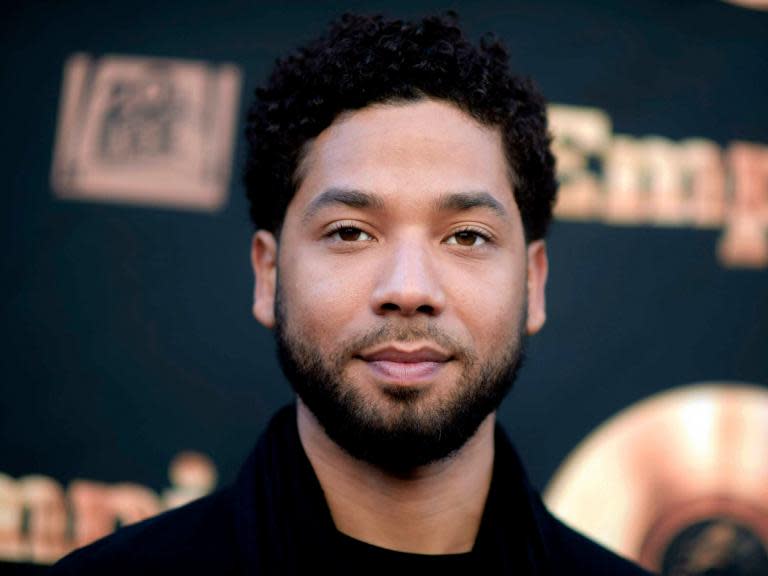The Jussie Smollett press conference in Chicago was tense — but for a black queer man like me, it was also deeply upsetting
I’m on holiday in Chicago. As I was in bed this morning staving off jetlag by scrolling through Twitter, I read of a press conference at the Chicago Police Department in relation to the Jussie Smollett case. As a queer black man, I have been following the story closely and after seeing that the press conference was happening 10 minutes from my friend’s apartment, I felt an Olivia Pope-like urge to go. I (perhaps narcissistically) felt it was important for me to be a representative of the QTPOC community in a room which I presumed would be overwhelmingly white — and luckily I managed to talk my way in.
The tension in that room was palpable, and as Chicago PD superintendent Eddie Johnson walked in, the look of despair on his face amplified that tension tenfold. As he revealed the details of Jussie Smollett’s allegedly false claims, it was clear that he was horrendously disappointed. His words were potent and he didn’t hide his emotion. He said Jussie had orchestrated an attack with the help of two men, paying them $3500. He supposed that Jussie’s injuries were self-inflicted and the threatening letter he received was sent himself. Superintendent Johnson seemed embarrassed and ashamed of Jussie, and it felt particularly resonant this chastisement coming from a him, a black man.
The wave of support for Smollett over the past three weeks has been overwhelming and I, like many, wanted to believe him. His lawyers have said they will "mount an aggressive defence".
I wanted to believe Jussie Smollett because attacks like the one he alleged do happen to queer and black people all the time around the world. And for once it felt like people were listening. Having someone like him speaking out legitimised many people’s experiences. Ultimately we want these horrific things to stop happening and for the perpetrators to be held accountable — and for accountability to be an option, we need people to pay attention. And they were. The story was huge. It ignited a fresh debate about xenophobia and homophobia which spread across the world.
I wanted to believe Jussie Smollett because the thought of him lying was too despicable to stomach. Using the symbolism of a noose would be dancing on the graves of ancestors who suffered and lost their lives. That just felt too horrifying to be fake.
I wanted to believe Jussie because how many other queer black role models do we have? Whether he likes it or not, he has a responsibility. There are so many young queer and/or black people who look up to him and his actions are not just his own. The thought of him as a role model being taken down was a wretched prospect.
I wanted to believe Jussie Smollett because his lying meant further empowering the right. And they already have so much power right now.
I’m not the only one who wanted to believe him. It’s been deeply troubling watching the castigation of public figures who came out in support of Jussie. Kamala Harris has been vilified for her comments on Twitter supporting him, but how was she to know? It seems possible that we were all duped. If Smollett built a convincing lie, then we would be shifting the blame away from the perpetrator by blaming people like Harris.
Credit should be given to Chicago PD’s handling of the case. They treated him as a victim and took his claims at face value, carrying out a thorough investigation into the alleged attack. I completely understand their frustrations at Smollett potentially tainting their city’s reputation for his own gain.
I don’t doubt for one moment that Jussie Smollett has genuinely experienced racism and homophobia throughout his life and career. And I understand the pain which this is coupled with. What I don’t understand is why he would seemingly make himself a pariah to both the LGBTQ+ and black communities who are here to support him. I have zero sympathy for the effect this may have on his career, but he still has a lot of his life to live. If charged, he will have a long time to make amends for what he’s done — however that manifests itself. He will also need to compensate the resources he hijacked, apologise to the people he hurt and acknowledge the unnecessary scepticism other victims might face in the wake of this fiasco.

 Yahoo News
Yahoo News 

